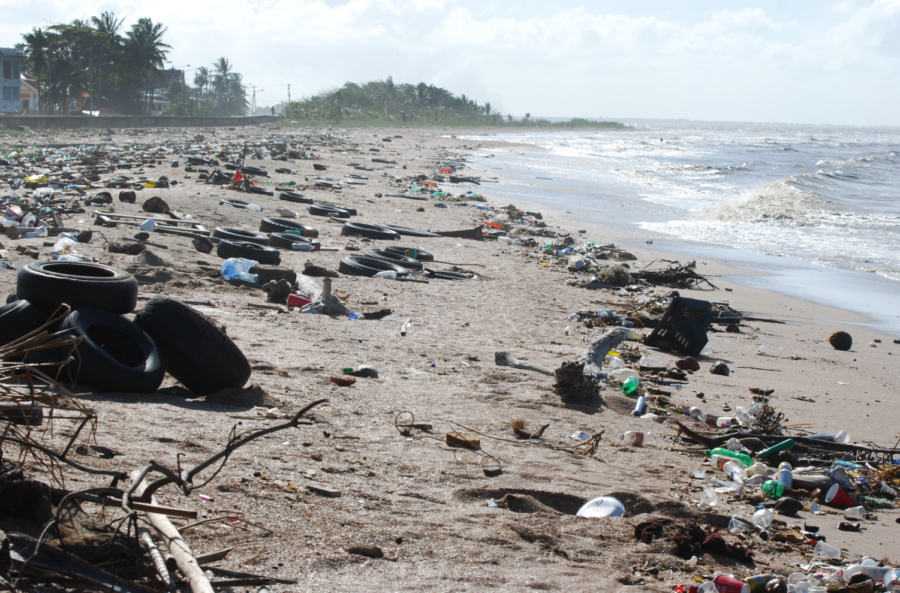The Un(sea)n Horrors of Pollution
Showing the litter problem on the coast of Guyana.
At the dawn of the 21st century, industry and technology has reached an impressive height that has not been seen before; however, convenience has a price.
Our massive consumption of fossil fuels, plastics, and other harmful artificial resources are taking a severe toll on the oceans, causing potentially irreversible damage.
Air pollution, caused by the burning of fossil fuels, is harming the health of the ocean. Over the course of a year, the ocean absorbs roughly a quarter of all global carbon dioxide emissions. That is approximately 2.5 billion tons of carbon dioxide annually. This unfathomable amount of pure carbon dioxide is rapidly acidifying the water, dissolving coral reefs and shifting the pH to dangerous levels.
For ocean lovers, this poses a threat. By 2100, the oceans will be far too toxic to be near, much less swim in. Estimations show that, even decades before this, people may require a specialized suit to protect themselves from toxic chemicals and acidic pH levels.
Another malevolent factor in ocean pollution is the runoff and waste generated by people living primarily in coastal regions. This runoff, otherwise known as non-point source pollution, makes up eighty percent of our ocean’s pollutants. Non-point source pollution includes many smaller contributors, including cars, septic tanks, boats, farms, and forested areas. Harmful excess substances from these sources often run into nearby waterways, which eventually join the ocean. Nitrates, oils, and pesticides in the water contribute to chemical poisoning of native habitats. The planet is seeing the rapid decay of fragile habitats at a faster rate than ever before.
These dismal effects can be alleviated by a collective effort to save our oceans. Beach cleanups, cleaner diesel fuels, and other environmental-friendly changes can easily be integrated into our daily routines without much inconvenience. Fortunately, environmental awareness has been steadily climbing in recent years along with efforts made to save our planet. Because after all, we share one home.

Hola! I'm Charles and I'm a sophomore at Cam High. I'm on varsity golf at Cam High and I also figure skate. I love art, iced coffee, and music :)

















































































![Senior Ditch Day... Relaxation or Truancy? [Video]](https://achsstinger.com/wp-content/uploads/2017/10/IMG_7119-900x599.jpg)
![Heavy Rain Hits Cam High [video]](https://achsstinger.com/wp-content/uploads/2017/02/maxresdefault-900x506.jpg)



